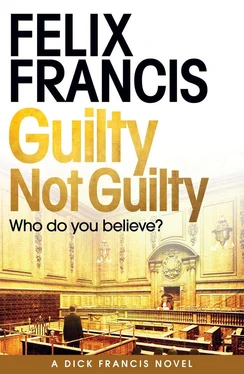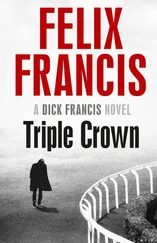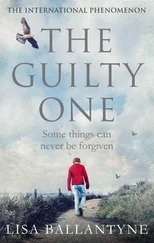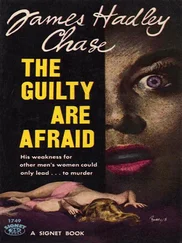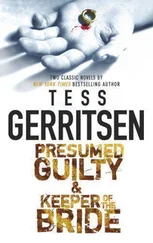‘And the location devices on both mobiles showed they didn’t move the whole evening. Joe Bradbury is still maintaining that he received a call from his sister and that was the sole reason he went to your house on Wednesday morning.’
‘He’s lying.’
‘There’s something else as well. The ANPR records for the M40, plus some CCTV footage we have obtained from a petrol station near the motorway junction, indicate beyond any doubt whatsoever that Joseph Bradbury and his black Nissan were in Banbury by eight-twenty on the morning of the murder. Yet he didn’t call the police emergency line to report his sister’s death until ten-seventeen. Almost two whole hours later. Now why was that?’
Why, indeed.
‘Have you asked him?’
‘Yes, I have. I went to arrest him at Bullingdon Prison where he was already being held on remand for your attempted murder. And, with a new arrest, we had another opportunity to question him.’
‘And?’
‘He said that he had agreed to meet your wife at nine o’clock but she didn’t turn up. The traffic had been lighter than he’d expected, so he was early, but he claims that he waited for her at the chosen rendezvous point for an hour before deciding to drive to your house.’
‘And where was this mysterious rendezvous point supposed to have been?’
‘At a disused pub car park in Wroxton.’
‘The Hare and Hounds?’
‘That’s the one. The pub’s all boarded up now.’
‘But why there?’
‘I’ve no idea,’ the DS had said. ‘But that’s what he told us.’
Amelia and I had enjoyed going to the Hare and Hounds in Wroxton, when it was open. The food had been very good and, in happier times, it had been where we had occasionally met Joe and his family for lunch on a Saturday. It had a nice garden with swings for their young girls to play on. But that had been back in the days when we had all been talking, rather than how things were now.
I’d sighed. Nothing ever stays the same.
‘Can Joe prove that he waited there for an hour? And, if Amelia was meant to turn up and didn’t, why didn’t he phone her?’
‘There’s no CCTV footage to prove either way if he was there or not and, because it’s in a dip, there’s no phone signal at that particular spot.’
That had been one of the reasons Amelia and I had loved the place so much. We couldn’t be interrupted by the continuous ringing of phones, both ours and other peoples.
‘He could have always driven up the hill to make a call. There’s plenty of signal there.’
‘He claims that he didn’t want to leave the car park, even for a few minutes, in case he missed Amelia.’
‘It all sounds a bit convenient to me,’ I’d said. ‘Joe knew the place, and also that it didn’t have any phone signal, so I think he’s just made it up about waiting there for an hour while he was, in fact, at my house killing my wife.’
‘As do the big brains at the CPS. That’s why they’ve sanctioned a charge of murder against him.’
I read the letter from Mary Bradbury’s solicitor one more time.
What did I want to do about her funeral?
It didn’t seem quite right, somehow, that it was my decision, but Joe wasn’t exactly in a position to do much about it, and his wife was as far away in family terms as I was — an in-law — and it had been Amelia and I who had done most for Mary when she’d been alive, so why shouldn’t I perform the necessary final duties after she was gone?
I rang the solicitor, a Mr James Fairbrother, MA (Oxon), TEP, according to the letterhead.
‘Oh, yes, um,’ he said hesitantly. ‘Mr Gordon-Russell. Thank you for calling.’
‘Please call me Mr Russell,’ I said. ‘Or even, just Bill.’
‘Oh, yes, right. Okay then... Bill.’
‘Shall I call you James?’ I asked.
‘Oh, yes.’ There was a very small nervous chuckle. ‘James. Or Jim. I answer to both.’
‘Okay then, James,’ I said. ‘I have received your letter concerning Mrs Mary Bradbury, my mother-in-law.’
‘Oh, yes, well, thank you. Yes. Such a dear old lady. So sad, so sad.’
I feared that this telephone conversation was going to be a bit sad too.
‘In your letter, you state that she has made me her sole executor.’
‘Oh, yes, well, that’s true. But...’ He stopped.
This was getting painful.
‘I understand that Mr Joseph Bradbury is challenging the will,’ I said, prompting what I thought he was about to say.
‘Oh, yes, well, I understand he’s trying to. But he won’t succeed.’
‘Are you sure?’
‘Oh, yes,’ he said. ‘Quite sure. Mrs Bradbury’s last will and testament was properly made and executed. I was present myself at the signing and there were several independent witnesses.’
‘I ought to warn you that Joseph Bradbury can be quite determined.’
‘Oh, yes, well, I know. Mrs Bradbury told me. But so was she. That’s why she insisted on having everything explained to her not just by one solicitor — that was me.’ He laughed nervously again. ‘But also by the head of my firm. Very adamant, she was.’
‘Who were the witnesses?’ I asked.
‘Oh, yes, well. The witnesses.’ I could hear papers being shuffled. ‘A Mr Frederick Marchant and a Mrs Jillian Marchant. I believe they were her neighbours.’
Yes , I thought. The ones who had taken her to Oxford on the day she’d come to see me at the John Radcliffe .
‘They are the ones who signed the document as the two legally required witnesses. But there were others present too. I was there, as was Mr Kaplan, he’s the head of our firm. Plus there was also Mrs Bradbury’s doctor.’
‘Her doctor? What was he there for?’
‘Oh, yes, well. After we’d arrived at her house, when we were all having tea in her sitting room, Mary asked her doctor to perform some cognitive assessment tests on her.’
‘Cognitive assessment tests?’
‘Oh, yes, well, to satisfy the golden rule.’
‘The golden rule?’ I asked.
‘Oh, yes, well, one always has to satisfy the golden rule. It states that “the making of a will by an aged or seriously ill testator ought to be witnessed or approved by a medical practitioner who has satisfied himself of the capacity and understanding of the testator, and records and preserves his examination or findings”. So the cognitive tests proved that Mary had full testamentary capacity at the time of the signing, in accordance with sections one to four of the Mental Capacity Act 2005. She also insisted on telling us all, several times, that she knew what she was doing, that her decision to sign was being taken freely of her own volition, that she was not being coerced, nor signing against her own free will. She then made us all write witness notes to that effect, which I have kept on file. Finally the executed will was lodged at the Probate Department Registry of the Family Division at the Royal Courts of Justice.’
The canny old bird. She had known that Joe would challenge her will so she had done her best to prevent him succeeding — and it was the full belt-and-braces job by the sound of it.
‘She seems to have covered everything,’ I said.
‘Oh, yes, well, I hope so. But Mr Bradbury could always still apply to the courts and make a claim against the estate under the Inheritance (Provision for Family and Dependants) Act 1975 on the grounds that he is in need of funds to provide for his wellbeing but, from what I know of his previous conduct, I think such a claim is also unlikely to succeed.’
‘His previous conduct?’
‘Oh, yes, well, the Inheritance Act 1975 does allow for the court to consider any conduct of the claimant which the court may consider relevant. In 2014, during the case of Wright v. Waters , the High Court of England and Wales had ruled that the treatment by a daughter of her late mother had been so deplorable that it outweighed all the other compelling factors in her favour, including the fact that the daughter was in poor health, confined to a wheelchair, and in financial difficulties.’ James paused and took breath. ‘I believe that, in this case, the High Court would similarly decide that Joseph Bradbury’s despicable conduct, having allegedly stolen a hundred thousand pounds from his mother during the sale of her house, outweighs all other factors.’
Читать дальше
